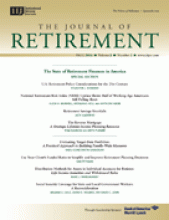By Neal Templin on Dec. 14, 2019
Looking to free up $4 million to fund your retirement or pay off your mortgage?
If you’re a senior with serious digs in places like California or the New York City area or other markets where many homeowners are house-rich and cash-poor, you might be able to secure such funds with only your home. The market for jumbo reverse mortgages has come back to life.
Reverse mortgages, in which retirees tap the equity in their homes through mortgages that don’t have to be paid as long as they live there, were long regarded as a last resort. Then financial experts began publishing research several years ago showing that the strategic use of reverse mortgages could help retirement portfolios better survive down markets or delay the claiming of Social Security benefits.
You may find the full article here.








